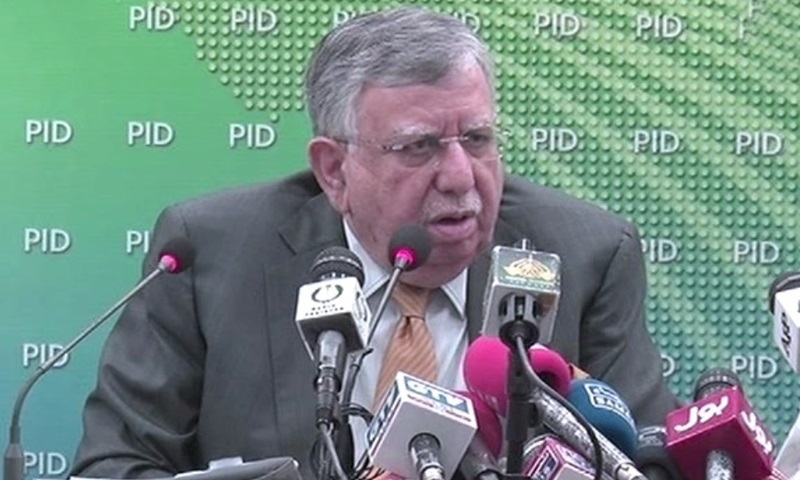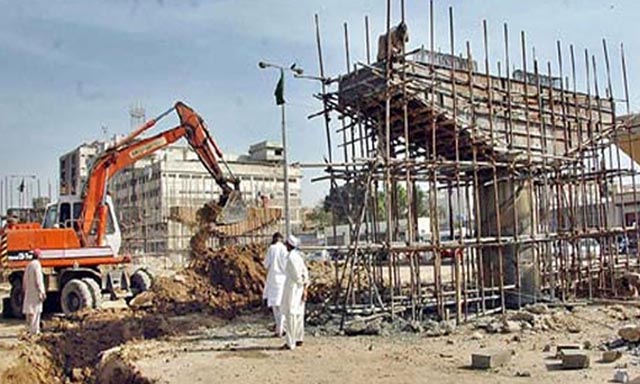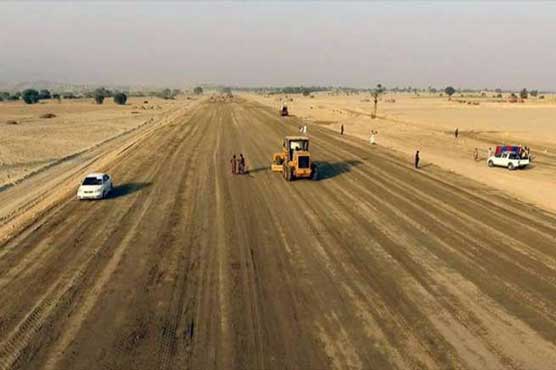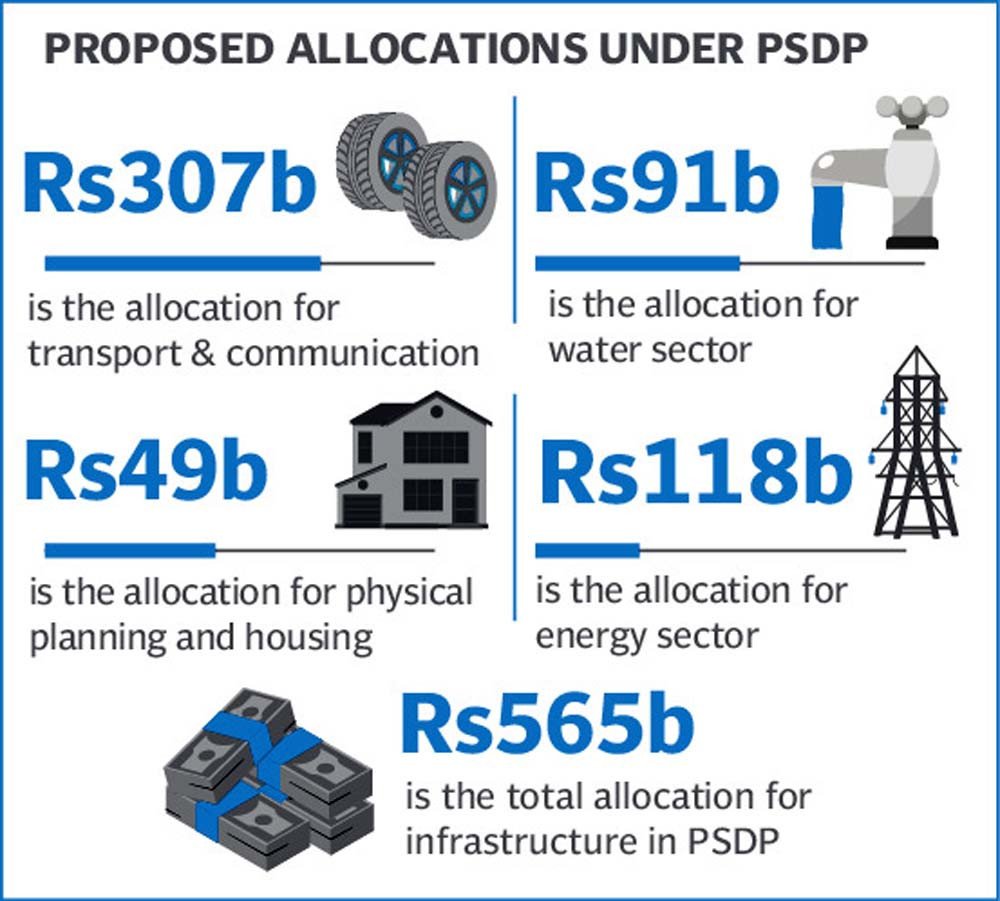ISLAMABAD: Shaukat Tarin has presented the Economic Survey of Pakistan 2020-21 in a live press conference in Islamabad today defining the past year performance and future economic agenda of the government.
The minister opened his press briefing by saying that policies and performance were hit in combating the coronavirus pandemic.
He said many people lost their jobs when the pandemic hit Pakistan, however, due to the prime minister’s visionary policy of not imposing a complete lockdown across the country, millions of people who were unemployed were hired again.

“The economy is recovering,” he said.
The Pakistan Economic Survey is an annual report on the performance of the economy, focusing in particular on major macroeconomic indicators.
The Finance Minister thanked the overseas Pakistanis and said that country is in current account surplus due to record remittances from fellow citizens working abroad.
The minister said that Pakistan is making progress on FATF conditions and hoped that the country will get relief in the next review; however, he refused to give anytime timeline.
Talking about inflation in the country, Finance Minister said that Pakistan is now a net food importer country so it is subjected to international price fluctuations; however, government tried its best to not pass on those effects to public.
Government is trying to make Pakistan net food exporter by focusing on agriculture and building cold storages to cut profits of middlemen and increase strategic reserves of basic commodities to regulate supply, he added.
On insistence of IMF on Income tax and power tariff to increase, Prime minister refused IMF to do so and said that the next focus is on growth.
Tarin started out by underscoring the impact of Covid-19 in causing the economy to contract last year. But, he said, the decisions of this government under Prime Minister Imran Khan helped the economy stabilise which resulted in improving performance on the growth front.
Tarin said Pakistan’s remittances had broken records, adding that they had crossed $26bn. He said that lately imports, especially food in the form of wheat and sugar, were increasing as Pakistan’s economy was growing at the same time.
“We were net exporter of food but now, we have become a net importer,” he said. “Our exports registered a growth but our remittances increased manifold,” he added.
The finance minister addressed criticism that the government was increasing debt. He said it was inevitable that the debt had to rise considering there was a fiscal deficit in the country.
“The total debt has only increased by 1.7 trillion from 2020-21,” he said, adding that it was a huge decline compared to the previous years.

“I’m not saying it’s a commendable thing that our debt is growing,” he said. “I am not saying that. But you can see stability [in the economy] return slowly,” he added.
He said both mobile phones and broadband subscribers have immensely increased in Pakistan, adding that it showed market penetration of these services have increased.
Tarin spoke highly of the Ehsaas programme, adding that the World Bank had described it as “one of the best and the largest” poverty alleviation initiatives across the globe.
“Full credit goes to Sania Nishtar,” he said, adding that handing out cash to 15mn people was not a small achievement.
The finance minister said he had spoken to the prime minister about moving Pakistan towards growth. “Till when will you stabilise the country? Unless we move towards a growth target of 5%, 6%, 7% and 8%, the large population of our youth will not get jobs,” he added.
Tarin said Turkey, China and India were nations who underwent sustainable economic growth over the past 20-30 years. “When did we grow? We have obtained loans and credits for the past few decades,” he said, adding that the government will move towards policies that will target growth.

He said the common man was struggling in Pakistan since commercial banks did not cater to their economic needs and provide loans to them.
“In this growth, the poor will be ‘number one’ for us, and this growth will trickle down to them,” he said.
Tarin spoke about the IT industry, saying that they had registered a growth of 40% but by the next budget, he intended for it to grow by 100%.
“India, in 2010, earned $1bn through IT exports. Today, they are earning $100bn through them. If they can grow 100 times, can’t we grow our IT industry by 40 or 50 times?” he asked.
Speaking about the power sector, Tarin said Pakistan’s economy was burdened due to the overcapacity in the power sector, saying that “it was a very big challenge and a black hole” for Pakistan.
“We have to continue to make capacity payments as a result,” he said, adding that even if Pakistan continued to grow at 4,5 or 6% in the next couple of years, the extent to which Pakistan had overbuilt, it is not possible for the country to utilise that capacity.
The finance minister said China was outsourcing 85mn jobs and Pakistan wanted to avail this opportunity. Tarin said Pakistan had sought feedback from Chinese manufacturers, asking them what facilities they needed to invest in Pakistan’s Special Economic Zones (SEZs).
“We also want to earn dollars as well,” he said, adding that for that to happen, Pakistan will have to increase its non-traditional exports and at the same time, invite direct investment.
Tarin rejected criticism on the government’s initiative to privatise state-owned enterprises (SOEs), adding that when these institutions were handed over to politicians, they liked to wield influence over them and as a result, destroy these institutions in the process.
Earlier, the finance minister called on PM Imran Khan where he spoke to him about the survey. Special Assistant to the Prime Minister on Revenue Waqar Masood was also present in the meeting.
What kind of picture economic survey portrays of Pakistan economy?
The Economic Survey for 2020-21 will throw light on the salient features of economic performance in the outgoing fiscal year. It is going to claim that total debt and liabilities (TDL) stood at Rs45 trillion by the end of March 2021 compared to Rs44.6 trillion at the end of June 2020.
This implies a 2% growth in nine months, which is the lowest ever growth of TDL in a single year in 15 years. Total debt of the government grew by 1.5% in this period.
Within external sources, multilateral and bilateral sources were the main contributors. Total debt and liabilities stood at 95.3% of the GDP at the end of third quarter of 2020-21 as against 103% of GDP in the comparable period last year. So total debt and liabilities decreased by almost 8% in one year.
“The government itself had set [GDP] growth will be 2.1pc and the IMF predicted even lower. But the decisions by this government such as incentivising manufacturing and textiles, construction, and interventions in agriculture have helped the economy recover.”
Pakistan has recorded a provisional growth rate of 3.94pc in the first 9 months of the fiscal year.

Tarin said large-scale manufacturing (LSM) showed growth of 9pc, while the agriculture sector growth clocked in at 2.77pc – against a target of 2.8pc – despite the “cotton crop getting ruined”.
He said even though the cotton crop did not perform so well, yields of other crops compensated for that, resulting in overall growth in agriculture of 2.77pc.
The finance minister said the government wanted to control inflation “but prices are still high and affecting the common man”.
“So the way to solve this is by increasing production and that is why we have focused on agriculture in this budget,” Tarin said.
Tarin said he had told the prime minister it was time to focus on sustainable growth “until we go to 5-8pc GDP growth”.
“We will do interventions and take care of the poor. The poor man has been crushed in this stabilisation phase because the dreams we have shown them have been of a trickledown economy. And this can only happen when growth is sustainable and continuous for 20-30 years,” he said.

Tarin, however, emphasised that this growth should not be based on borrowing.
“Countries which had sustainable growth, they grew continuously for 20-30 years. What have we done? Every time we grow by borrowing money, which is credit-based growth.”
Media person and communication expert for over 25 years. Worked with Dow Jones News, World Bank, CNBC Pakistan, Aaj TV, ARY TV, Abbtakk TV, Business Recorder, Pakistan Observer, Online News Network, TTI Magazine and other local and world Publications.










